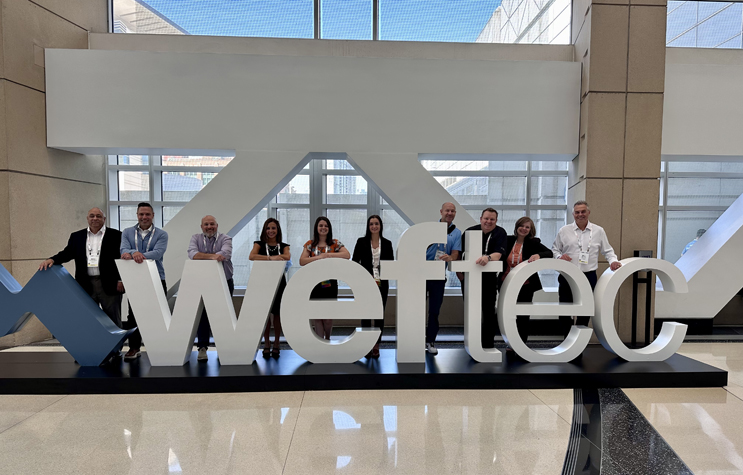WEFTEC 2025: Water Sector Pivots Toward Resilience, AI, And Circularity
From technology breakthroughs to operator excellence, this year’s event showed water’s future is already flowing.
WEFTEC 2025, hosted by the Water Environment Federation (WEF) in Chicago from Sept. 27 to Oct. 1, reaffirmed why it remains the world’s premier water quality event — a meeting ground where technology, policy, and practice converge. This year’s conference spotlighted how utilities and engineers are reimagining operations through resilience planning, digital transformation, and circular water systems. From the exhibit floor to the keynote stage, experts emphasized a future built on both sustainability and security.

Core Themes And Industry Perspectives
Resilience as Strategy
Experts from utilities and engineering firms agreed that “resilience” is no longer a buzzword — it’s an operational imperative. Technical sessions explored climate adaptation, flood control, supply chain reliability, and the modernization of critical infrastructure. Speakers underscored the growing expectation that utilities be designed to withstand not only environmental shocks but also cyber and financial disruptions.
AI, Data, and Digital Utilities
Artificial intelligence and data integration dominated the conversation. The packed session “The Role of GenAI for the Global Water Sector” examined how utilities can responsibly leverage generative AI for predictive maintenance, anomaly detection, and process optimization (reiterating much of the guidance shared in a recent Water Online Live Event). WEF also unveiled its new Water-AI Nexus Center of Excellence, created in partnership with utilities, technology firms, and research institutions to advance AI governance and real-world deployment across the sector.
Technical Depth and Operator Empowerment
As always, the technical program drew high praise for balancing advanced research with operator-focused practicality. Topics ranged from PFAS removal and nutrient recovery to decentralized treatment and digital twin modeling. Workshops gave participants hands-on exposure to control systems, energy recovery methods, and biosolids management — equipping attendees to return home with actionable tools.
Innovation and Global Collaboration
The exhibition floor reflected an accelerating innovation curve. Startups and established manufacturers alike showcased smart sensors, modular systems, and zero-carbon treatment solutions. The Global Center continued to foster international collaboration, connecting U.S. utilities with global delegations and reinforcing water’s role as a shared resource and responsibility.
Community and Workforce Development
Beyond technology, WEFTEC 2025 placed renewed emphasis on people. The Operations Challenge once again celebrated the skill, teamwork, and precision of field operators — a reminder that resilience depends on human capability as much as hardware. Mentorship events and networking tracks for young professionals also drew strong participation, helping sustain the next generation of water leaders.
Industry Takeaways And Outlook
The verdict from attendees and experts alike: this year’s show marked a shift from exploration to execution. The water industry is maturing beyond pilot projects and into integrated, data-driven operations. Challenges remain — particularly around funding, workforce capacity, and making digital solutions more scalable and affordable for smaller utilities — but optimism ruled the day.
If WEFTEC 2025 is any indication, the coming year will bring continued movement toward a smarter, more adaptive, and globally connected water sector.
